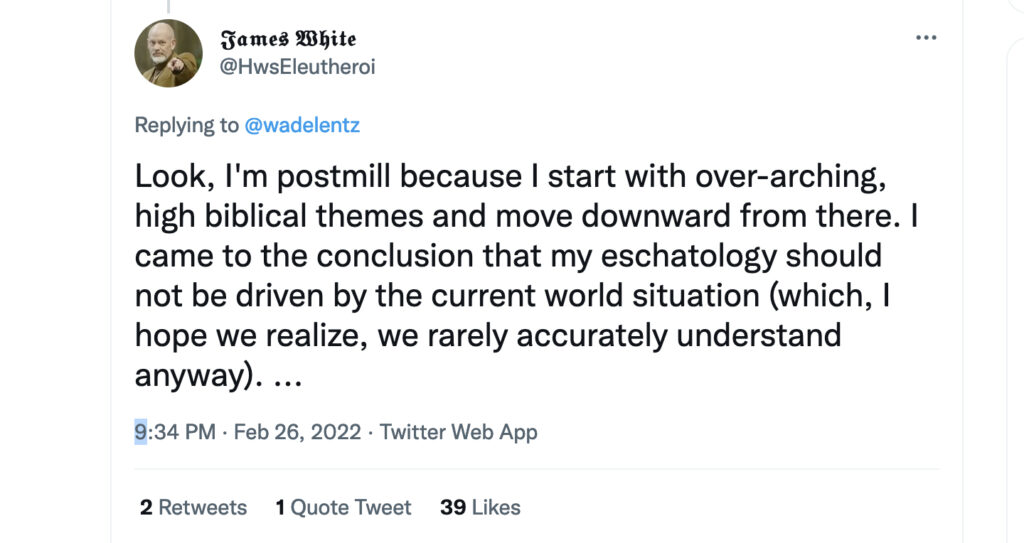I want to respond to my friend Dr. James White—who knows better than to make this claim about biblical interpretation!
One never, never should start with theological principles in the practice of interpretation as it will skew one’s theological conclusions. In fact, you don’t want to use them at all in exegesis.
Your theology should be developed on the exegesis of specific biblical texts, and only afterwards should you synthesize them to develop a biblical theology.
All too often I see theologians—and scholars can do this on occasion—use theological a priori principles to impose meanings on specific texts, which end up prejudicing their conclusions. I see this with traditional dispensationalists, progressive dispensationalists, covenantalists, amillennialists, postmillennialists, supersessionists, and so on.
So contra Dr. James White, we should not use “over-arching” theological principles and move “downward.” Incidentally, why should you then move downward if you have already predetermined your conclusion from above? Nor should we use current events in our practice of biblical interpretation.
For a good example—and a rare example among the literature out there—on how to interpret passages related to eschatology based on sound exegetical—not theological—principles, see my forthcoming work: The Millennial Binding of Satan: A Linguistic Approach to Revelation 19:11—20:6. Linguistic Biblical Studies. Leiden: Brill, 2022.



